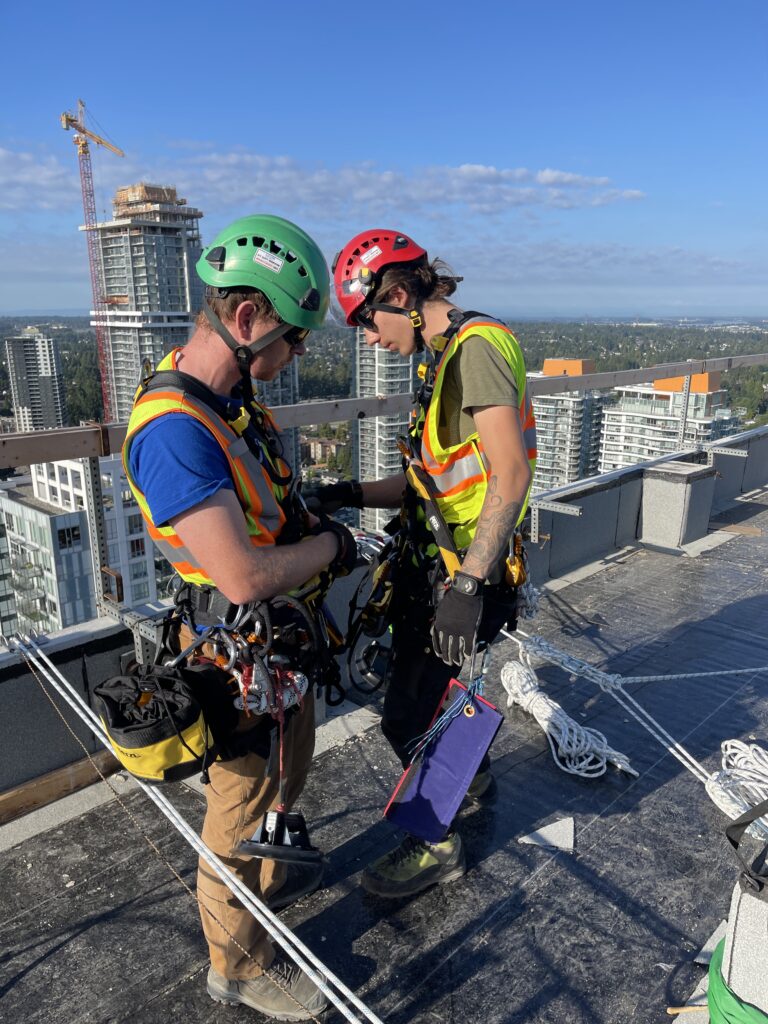Can anyone do rope access?
Here’s What You Need to Know!
We are regularly asked if rope access is a career path open to all. The straightforward answer is yes, but there are essential prerequisites to consider.
Rope access demands specific pre-job requirements, similar to other professions.
With over 15 years in the field, a critical initial question I advise asking is, “How are you with heights?”
If the mere thought of looking down from a significant height makes you uneasy, rope access may not suit you. However, you’re off to a promising start if heights don’t faze you.
Training and certification are your next steps. In North America, there are two leading organisations:
- IRATA: Industrial Rope Access Training Association
- SPRAT: Society of Professional Rope Access Technicians
Choosing between IRATA and SPRAT largely depends on your career goals. IRATA is recognised worldwide and is a must-have in the oil and gas sector, while SPRAT is preferred by some in the renewable energy industry. However, having both certifications can enhance your employability.
Wondering where to get trained?
In Western Canada, Technical Access Group (TAG) and Pacific Ropes stand out for their comprehensive IRATA and SPRAT training programs. A standard course spans five days, four days of training, and the fifth day is when the third-party IRATA-Assessor/SPRAT-Evaluator ensures you’re safe for the big world of rope access. In recent times, some training companies have started to run a six-day course, five days of training, and the sixth day is for assessment/evaluation.
A point to note – This is a pass/fail course. Your safety and well-being are more important than your ego.
As of January 2024, expect to invest between $2000 – $2400 plus taxes for the course.
Upon certification, maintaining and updating your skills is crucial. Inactivity for six months or more may require refresher training, so keep your logbook updated. To stay sharp, participate in monthly training nights offered by your training facility.
As you embark on your first contract, prioritise safety above all. Never hesitate to seek clarity or training on unfamiliar tasks or equipment. Remember, you have the right to refuse unsafe work.
While the allure of higher certifications and pay is strong, don’t rush. Experience is key to handling the responsibilities that come with advanced levels.
Rope access is not just a job; it’s a career that offers adventure, camaraderie, and the opportunity to travel the world. Keep these points in mind:
- Evaluate your comfort with heights.
- Seek proper training and certification.
- Always prioritise safety and never be afraid to ask questions.
- Enjoy the journey and the unique experiences this career offers.
- You’ll meet new friends for life.
- Leave your ego at home. Your L3 supervisor will have enough for everyone.
Best of luck on your rope access journey!


